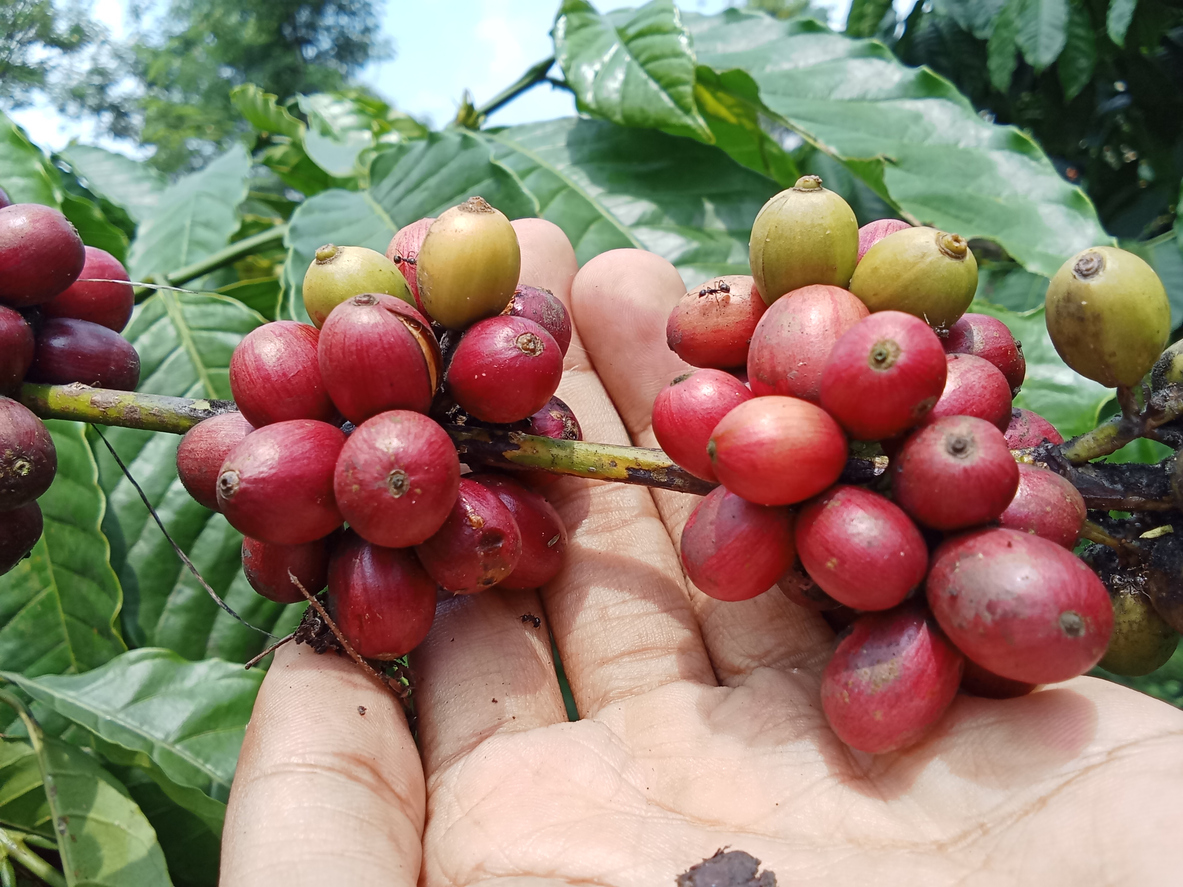
Study Reveals Liberica Coffee Consists of Three Distinct Species with Climate-Resilient Options
August 27, 2025| |
The global coffee supply relies on just two species, Arabica (Coffea arabica) and Robusta (C. canephora). Climate change, rising temperatures, and unpredictable weather patterns are making it increasingly difficult for farmers to grow these coffee plants, posing a significant threat to the industry.
As climate change threatens the two main coffee species, Arabica and Robusta, researchers are looking for alternatives. A new genetic study on Liberica coffee (C. liberica) published in Nature Plants has revealed it is not one but three distinct species, each with unique traits that could make them more resilient to warm temperatures, drought, and erratic weather. While Liberica is already grown in countries like Uganda, South Sudan, India, Vietnam, Malaysia, the Philippines, Indonesia, and the Pacific, accounting for less than 1% of global production.
The new study reveals that the three species—C. liberica, C. dewevrei, and the lesser-known C. klainei—have unique climate tolerances. C. dewevrei is more drought-tolerant, while C. liberica is better suited for regions with seasonal rainfall and longer dry seasons. These species, particularly C. liberica and C. dewevrei, have significant potential for cultivation in hotter, wetter climates where Arabica and Robusta struggle. Further research and field trials are needed to confirm these adaptations, but the findings offer promising new avenues for coffee breeding to secure future global coffee supplies.
For more details, read the article in Global Coffee Report or download the open-access paper in Nature Plants.
| |
You might also like:
- International Research Team Discovers Genes Against Coffee Leaf Rust
- New Reference Genome of Arabica Depicts Its History and Future
- Study Gives Details on Arabica Coffee's Complex Genome
Biotech Updates is a weekly newsletter of ISAAA, a not-for-profit organization. It is distributed for free to over 22,000 subscribers worldwide to inform them about the key developments in biosciences, especially in biotechnology. Your support will help us in our mission to feed the world with knowledge. You can help by donating as little as $10.
-
See more articles:
-
Plant
- Oxford Develops Honey Bee Food Supplements Using CRISPR-Cas9
- Experts Introduce CRISPR-GPT to Automate Gene Editing Experiments
- AI Tool MorphPod Automates Plant Fruit Measuring to Breed Better Crops
- EFSA GMO Panel Releases Scientific Assessment of GM Cotton GHB614 × LLCotton25
- Chile Gives Green Light to Gene-edited High-fiber Wheat
-
Food
- Study Reveals Liberica Coffee Consists of Three Distinct Species with Climate-Resilient Options
- Last Chance to Secure Your Spot at ASCA 2025
-
Health
- McGill Researchers Use Vibrations to Strengthen Lab-Grown Tissues
-
Read the latest: - Biotech Updates (December 3, 2025)
- Gene Editing Supplement (November 26, 2025)
- Gene Drive Supplement (February 22, 2023)
-
Subscribe to BU: - Share
- Tweet

